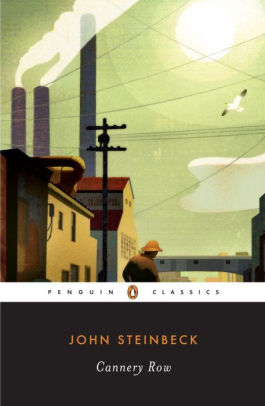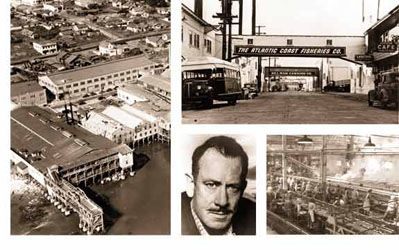

"The Penguin Drop Caps series is a great example of the power of design. Bonus points for the heartening gender balance of the initial selections.”

“Vibrant, minimalist new typographic covers…. " convey a sense of nostalgia for the tactility and aesthetic power of a physical book and for a centuries-old tradition of beautiful lettering." Winner of the 2014 Type Directors Club Communication Design Award Winner of the 2012 Fifty Books/Fifty Covers show, organized by Design Observer in association with AIGA and Designers & Books Other books he has narrated include The Blue Ice, Out on the Rim, and Crazy Heart. Jerry Farden has narrated several of John Steinbeck’s books, including Cannery Row and Sweet Thursday.

Today, more than 30 years after his death, he remains one of America's greatest writers and cultural figures. The Grapes of Wrath won both the National Book Award and the Pulitzer Prize in 1939.Steinbeck received the Nobel Prize in Literature in 1962, and, in 1964, he was presented with the United States Medal of Freedom by President Lyndon B. Three powerful novels of the late 1930s focused on the California laboring class: In Dubious Battle (1936), Of Mice and Men (1937), and the book considered by many his finest, The Grapes of Wrath (1939). A ceaseless experimenter throughout his career, Steinbeck changed courses regularly. Popular success and financial security came only with Tortilla Flat (1935), stories about Monterey’s paisanos. After marriage and a move to Pacific Grove, he published two California books, The Pastures of Heaven (1932) and To a God Unknown (1933), and worked on short stories later collected in The Long Valley (1938). During the next five years he supported himself as a laborer and journalist in New York City, all the time working on his first novel, Cup of Gold (1929). In 1919 he went to Stanford University, where he intermittently enrolled in literature and writing courses until he left in 1925 without taking a degree. Both the valley and the coast would serve as settings for some of his best fiction. John Steinbeck, born in Salinas, California, in 1902, grew up in a fertile agricultural valley, about 25 miles from the Pacific Coast.


 0 kommentar(er)
0 kommentar(er)
